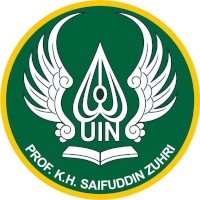Pemikiran Ekonomi Islam Ibnu Miskawaih
DOI:
https://doi.org/10.24090/ej.v12i2.11739Keywords:
Keywords: ibn miskawaih; islamic economics thought; virtue ethics; wealth distribution; suistainable economy.Abstract
This study aims to explore the Islamic economic thought articulated by Ibnu Miskawaih, a prominent Muslim philosopher of the 10th century. The urgency of this research lies in the need to understand the foundations of Islamic economics rooted in ethical and moral values. The research method employed is qualitative with a historical approach and content analysis. The theory used in the analysis is the virtue ethics theory espoused by Ibnu Miskawaih, emphasizing the importance of justice, balance, and happiness in economic life. The findings indicate that Ibnu Miskawaih's economic thought emphasizes fair wealth distribution, the avoidance of usury practices, and the role of the state in regulating the economy for the common good. The analysis and discussion compare these thoughts with conventional economic theories, finding alignment in basic principles but differences in practical applications. The conclusion of this research is that Ibnu Miskawaih's economic thought offers an ethical and sustainable alternative to modern economic systems, which often neglect moral aspects. This thought is relevant for further study in the context of contemporary Islamic economic development. Keywords: ibn miskawaih; islamic economics thought; virtue ethics; wealth distribution; suistainable economy.References
Departemen RI, Ensiklopedi Islam di Indonesia, (Jakarta: Proyek Peningkatan Prasarana dan Sarjana Perguruan Tinggi Agama/IAIN, 1993)
al Zugby, Fathi Muhammad. 1995. Falsafah al Akhlaq 'Inda Maskawaih, Juz II. Tanta, Mesir: Maktabah Asywal.
Nizar, Barsihannor, dan Muhammad Amri. 2017. Pemikiran Etika Ibnu Miskawaih, Vol. 11, No. 1, Juni 2017: UIN Alauddin Makasar
Saprida, Qodariah, Barkah dan Zuul Fitriani Umari. (2021). Sejarah Pemikiran Ekonomi Islam. Jakarta: Kencana
Hasibuan, Sri Wahyuni et. all. (2021). Sejarah Pemikiran Ekonomi Islam. Bandung: Media Sains Indonesia
Istighfarotur Rahmaniyah, Pendidikan Etika, (Malang: UIN Maliki Press, 2010)
Muftuhin, Filsafat Islam, (Yogyakarta: Teras, 2012)
Muhaimin, Kawasan dan Wawasan Studi Islam, (Jakarta: Fajar Interpratama Offset, 2005)
Sudaroso, Filsafat Islam, (Jakarta: PT. Rineka Cipta, 2004)
Taufik Abdullah, Ensiklopedi Islam, (Jakarta: PT. Ichtiar Baru Van Hoeve, 2000)
Ibnu Miskawaih, Tahdzib al-Akhlaq, (Beirut Libanon: Daarul Kutub alIlmiah, 1985)
Maskawaih, Ibnu, Menuju Kesempurnaan Akhlak Cet. IV; Bandung: Mizan, 1999.
Nasution, Harun, Filsafat dan Mistisisme dalam Islam Jakarta: Bulan Bintang, 1973.
Nasution, Hasyimiyah, Filsafat Islam Cet. I; Jakarta: Gajah Mada Press, 1999.
Amin, Ahmad.1993. Al Akhlak, Terj. Farid Ma'ruf. Etika: Ilmu Akhlak. Jakarta: Bulan Bintang.
Nizar, Barsihannor, dan Muhammad Amri. 2017. Pemikiran Etika Ibnu Miskawaih, Vol. 11, No. 1, Juni 2017: UIN Alauddin Makasar
Downloads
Published
How to Cite
Issue
Section
License
Copyright (c) 2024 Miftaakhul Amri, Cahya Ningrum Ramadhani, Een Setiana, Muhammad Fairuz Abyan Rohimin

This work is licensed under a Creative Commons Attribution-ShareAlike 4.0 International License.
Authors who publish with this journal agree to the following terms:
- Authors retain copyright and grant the journal right of first publication with the work simultaneously licensed under a Creative Commons Attribution-ShareAlike License that allows others to share the work with an acknowledgement of the work's authorship and initial publication in this journal.
- Authors are able to enter into separate, additional contractual arrangements for the non-exclusive distribution of the journal's published version of the work (e.g., post it to an institutional repository or publish it in a book), with an acknowledgement of its initial publication in this journal.
- Authors are permitted and encouraged to post their work online (e.g., in institutional repositories or on their website) prior to and during the submission process, as it can lead to productive exchanges, as well as earlier and greater citation of published work (See The Effect of Open Access).














